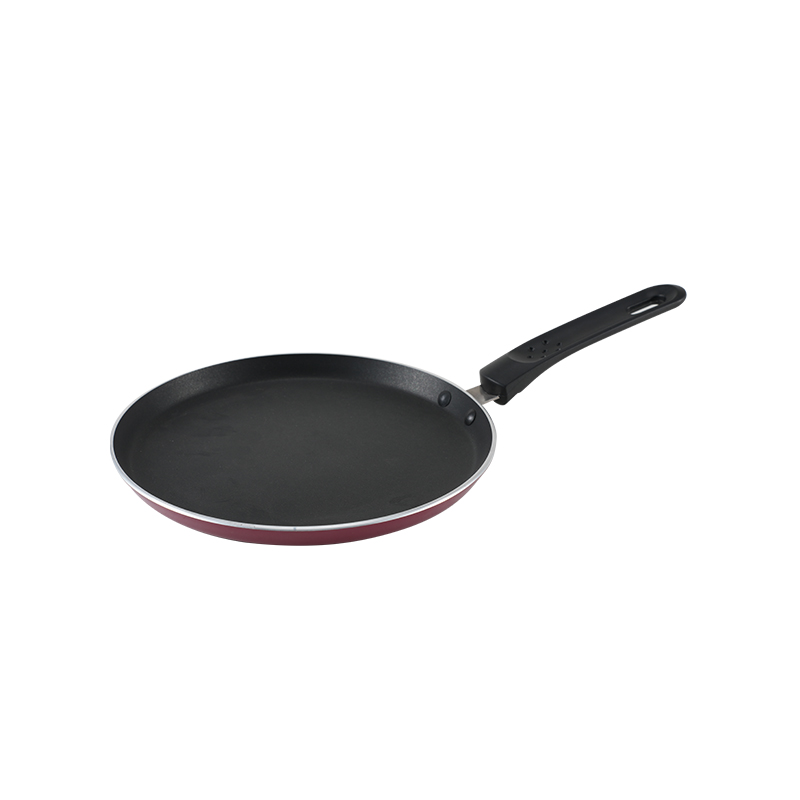Aluminum Cast Iron Skillet vs. Traditional Iron: What's the Difference?
May 15, 2025
When it comes to choosing the right cookware for your kitchen, skillets are an essential piece that cooks—whether amateur or professional—can't live without. Among the many options available today, a growing number of people are considering the Aluminum Cast Iron Skillet as a modern alternative to the traditional cast iron version. But what exactly is the difference between a Cast Aluminum Skillet and a traditional iron skillet?

The primary difference between an Aluminum Cast Iron Skillet and a traditional iron skillet is the material and its resulting properties. Traditional cast iron skillets are made from molten iron poured into molds. They are incredibly durable, retain heat exceptionally well, and develop a natural non-stick surface when properly seasoned. However, they are also heavy, take time to heat up, and require more maintenance to prevent rust and maintain performance.
On the other hand, the Cast Aluminum Skillet is made from molten aluminum, also poured into molds, but with a different outcome. Aluminum is much lighter than iron, making the Aluminum Cast Iron Skillet far easier to handle, especially for people with mobility issues or those who prefer lightweight cookware for everyday use. Despite being lighter, it still offers great durability thanks to the casting process.
One of the standout features of a Cast Aluminum Skillet is its outstanding heat conductivity. Aluminum heats up much faster than iron, ensuring that the skillet is ready for cooking in less time. It also distributes heat more evenly across the surface, reducing the chances of hot spots that can burn food. This makes the Aluminum Cast Iron Skillet ideal for quick meals, sauteing vegetables, or frying eggs with consistent results.
Traditional iron skillets take longer to heat but retain that heat much longer. This makes them better suited for slow cooking, searing meats, or baking dishes that benefit from consistent, radiant heat. However, this also means they take more time to cool down and can sometimes overcook food if not carefully monitored.
Another practical advantage of the Aluminum Skillet With Lid is its versatility. The inclusion of a lid makes it great for steaming, simmering, or keeping food warm after cooking. The lid helps trap moisture and flavor, enhancing the outcome of your dishes. In comparison, many traditional cast iron skillets are sold without lids, requiring an additional purchase or improvisation.
Cleaning and maintenance are other major points of comparison. Traditional iron skillets must be hand-washed, dried thoroughly, and seasoned regularly to maintain their non-stick surface and prevent rust. In contrast, Cast Aluminum Skillet models, especially non-stick versions, require far less maintenance. Many are dishwasher-safe, although hand-washing is still recommended to prolong their life. The Aluminum Skillet With Lid is also generally easier to clean, and the lid itself can often double as a cover for storage, making it more kitchen-friendly.
Despite these benefits, it's important to note that Aluminum Cast Iron Skillet cookware doesn't retain heat as long as traditional iron. If you frequently cook dishes that need prolonged, steady heat—such as cornbread, frittatas, or roasts—then the traditional version might still have the edge.
That said, modern Aluminum Skillet With Lid designs often incorporate improvements like thicker bases and reinforced walls to enhance heat retention. This closes the performance gap between aluminum and iron while still offering the advantages of lighter weight and faster heating.
Aesthetically, Cast Aluminum Skillet products also come in a wider variety of colors and finishes, giving home cooks the freedom to choose cookware that matches their kitchen's decor. Traditional cast iron, while classic, tends to have a more rugged, utilitarian look.
The choice between an Aluminum Cast Iron Skillet and a traditional cast iron skillet largely depends on your cooking style and preferences. If you value fast heating, lightweight handling, easy cleanup, and versatility, especially when paired with an Aluminum Skillet With Lid, then a Cast Aluminum Skillet is a smart investment. On the other hand, if heat retention and the nostalgia of traditional cookware matter to you, sticking with cast iron might be the right call.
 English
English русский
русский Français
Français Español
Español Português
Português عربى
عربى














